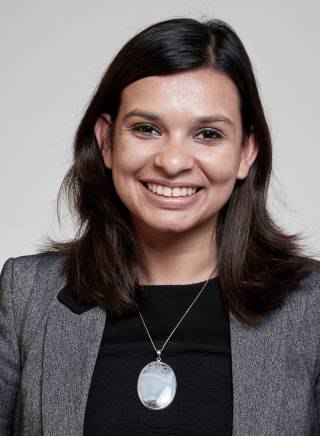Manda completed her PhD with Prof. Ofer Lahav in cosmology, and was the winner of the Jon Darius Award in 2009.
I undertook my PhD studies in the Astrophysics group at UCL between 2006 and 2009. Having come into the PhD program off the back of a three year Bachelor's degree in Physics followed by a year's work experience in Industry, I had very little experience of Astrophysics research and was fascinated by a lot of the PhD projects on offer. Staff members at UCL were accommodating of my broad research interests and I was given the opportunity to work on an extremely diverse range of projects spanning from cosmology to astrochemistry. After my PhD I went on to take up a postdoctoral position at the Institute of Astronomy in Cambridge working on the discovery of high-redshift quasars. The unique breadth of my PhD research experience at UCL was invaluable in allowing me to take on yet another new area of research as a postdoc, which then became my main area of research through my academic career. I currently work in the broad area of galaxy formation and evolution, in particular understanding the co-evolution of galaxies and their supermassive black holes. I exploit a range of multi-wavelength survey and follow-up observational data from large ground-based telescopes for these purposes.
Since my PhD I have held both an Ernest Rutherford Fellowship and a Royal Society University Research Fellowship at the University of Cambridge and am currently an Associate Professor in Astronomy at the University of Southampton. As a holder of a research fellowship, I get to dedicate a significant portion of my time to research but nowadays the most enjoyable aspect of my job is working with some of the amazing graduate students and postdoctoral researchers that I have the privilege of collaborating with. Several of my former graduate students have gone on to hold successful postdoctoral positions and provide me with constant inspiration for new research ideas.
I really enjoy the variety of my current job. In addition to doing my own research and interacting with students, I also currently chair our department's Equality, Diversity and Inclusivity committee and represent the department on these issues at a Faculty level. It is both challenging and enormously rewarding working towards creating a more inclusive environment for future researchers in our field. This year I have also taken on a new role within the undergraduate admissions team in Physics. A lot of my research time is also spent in leadership and management roles within large survey projects such as the Vera C. Rubin Observatory Legacy Survey of Space Time. During my PhD at UCL I was encouraged to get involved in large collaborations at an early stage of my career, which has served me well in being able to take on these roles today.
My advice to any budding scientists out there would be to identify what makes you happy and pursue your own path as a scientist without comparing yourself to others around you. We all have our own unique ambitions and unique ways of realising these ambitions. It is healthy and indeed vital for progress that scientists have a diverse goals as well as diverse paths to accomplishing them. Find your own definition of success because it is the only one that really matters.

 Close
Close

